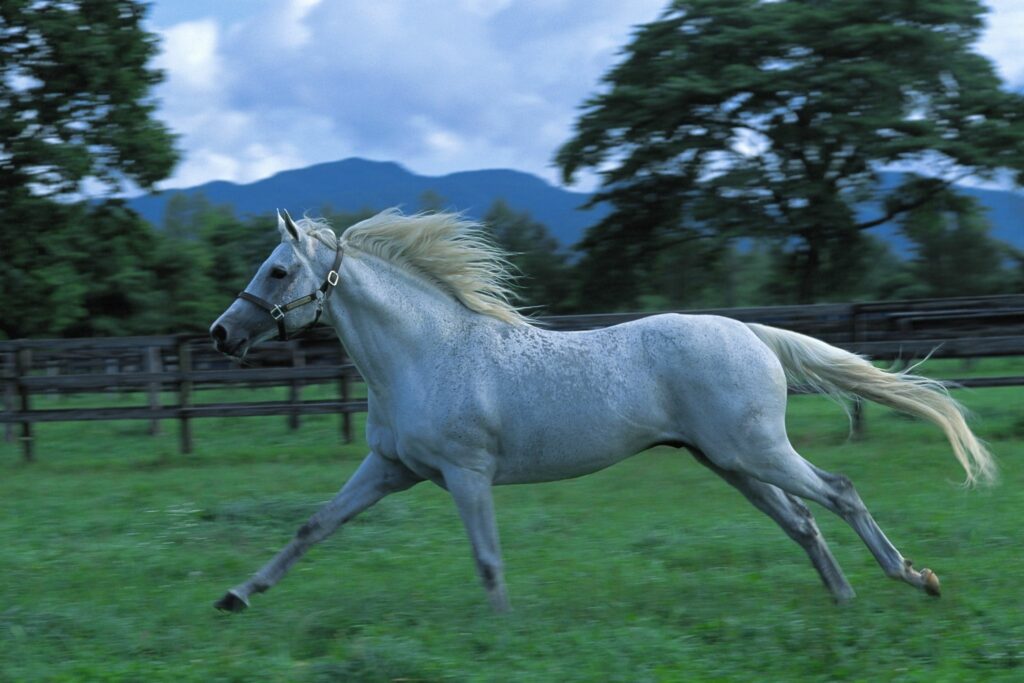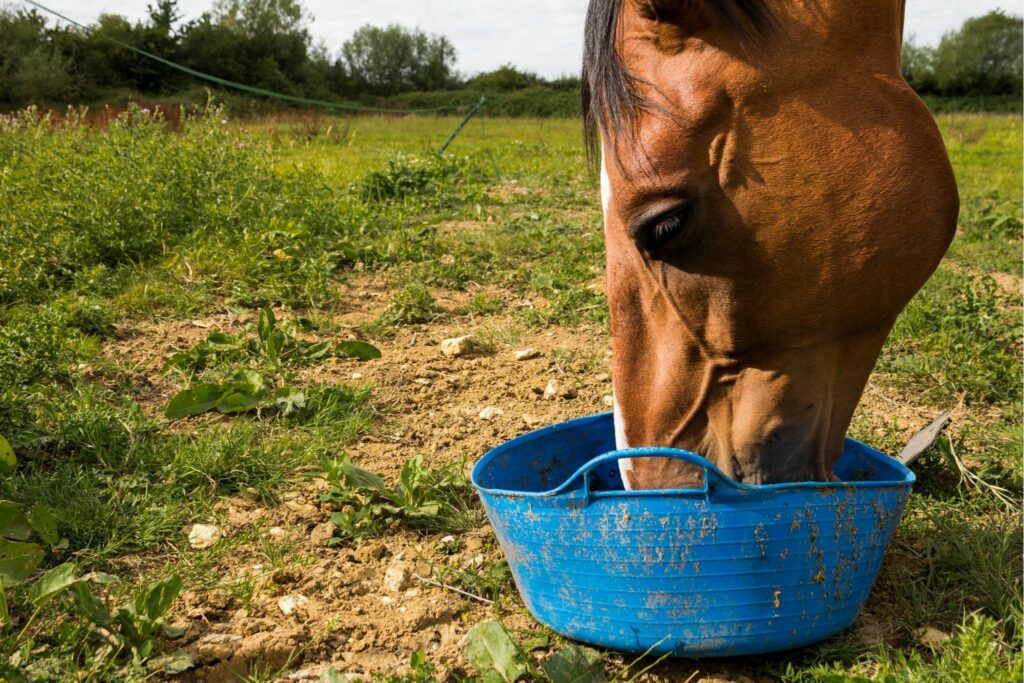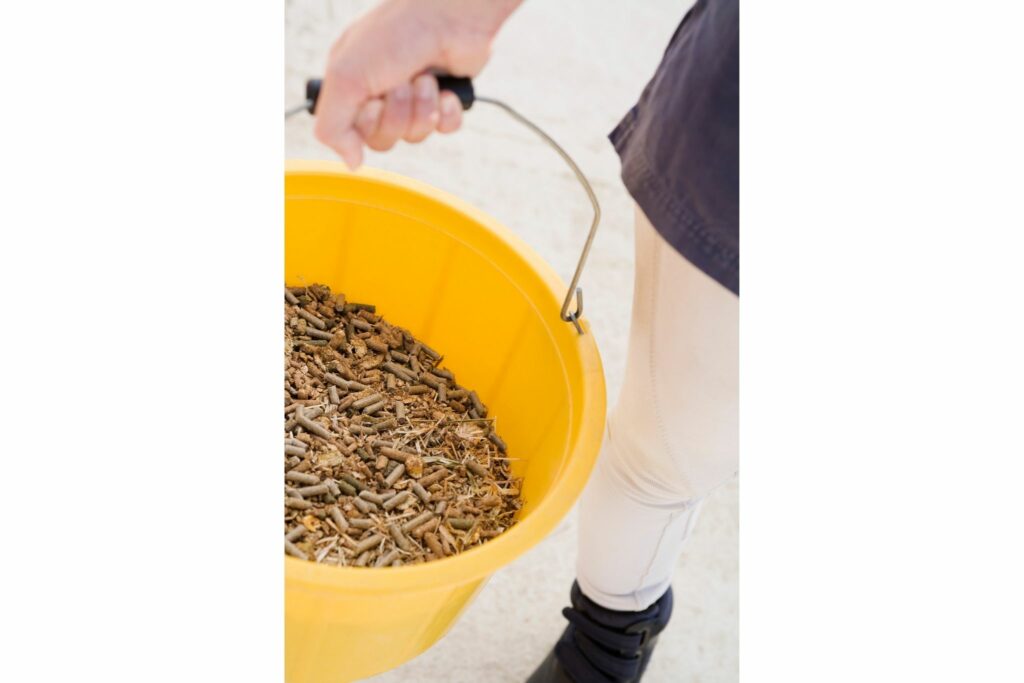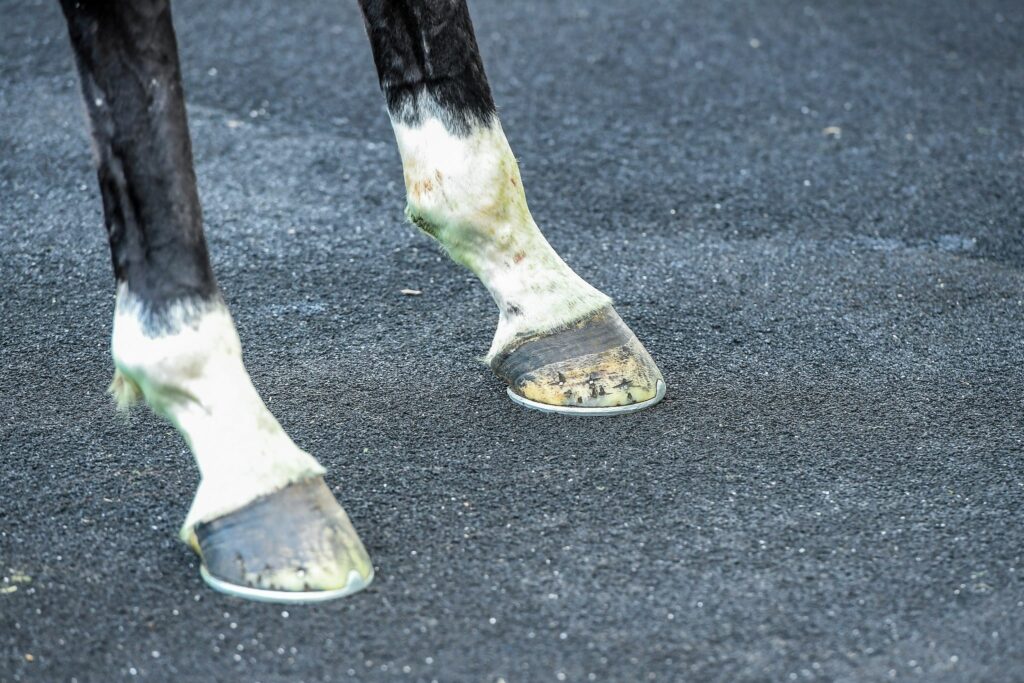Horse News
Member
Is your Thoroughbred feeling and performing at its best?
Choosing the right supplement combination for your horse can feel intimidating. Anyone who’s spent more than thirty seconds on SmartPak.com knows there are thousands of choices and a range of prices. So how do you choose the supplements that are best for your off the track Thoroughbred (OTTB)?
OTTB or not, no two horses are the same. Just because your friend, who owns three, feeds one product doesn’t mean your horse will benefit from it. Before adding supplements, make sure your OTTB is getting the right hay and grain (this combo can do wonders for their health). When in doubt, always ask your vet for advice.
If your OTTB still isn’t feeling 100%, figure out in which areas they need the most help (i.e. stronger hooves, shiner coat, to stop spooking at EVERYTHING, etc.), and focus your search on supplements that help in those specific issues. This article can help!

The Basics of Supplements
Let’s face it, supplementing can be a challenge—twice as much if you have a picky eater. At the end of the day, the right supplement for your horse in any category is often the one they will eat.
Know that it will take some time to find the right combo and even more time to start seeing a difference.
Unfortunately, no supplement starts working overnight. Most take a minimum of six to eight weeks before you can see an improvement.
Are supplements included in grain?
The answer to this depends on how you define a supplement. Technically, grain itself could be considered one since wild horses don’t eat it. Most grains include some ingredients that can count as supplements, like prebiotics, vitamins, and minerals.
Many items a horse needs should be fed in specific ratios (like calcium and phosphorus in a 2:1 ratio). You can learn more about balancing a horse’s nutritional needs here.
Some nutrients max out at a certain level of absorption—so if your grain already contains a necessary nutrient, supplementing extra may result in throwing your money away. Many of the major feed and supplement companies have an equine nutritionist on staff that would be happy to take a look at your horse’s diet and make recommendations.
Are supplements regulated by any governing bodies?
The short answer? No. While humans can rely on the Food and Drug Administration (FDA), there’s not yet a true equivalent for horses. There are a handful of products (like Adequan) that have been FDA-approved, but those are the exceptions.
Many companies that produce horse supplements can voluntarily join and adhere to the high quality and safety standards provided by the National Animal Supplement Council (NASC). Learn more about them and the companies following their guidelines here.
What are typical problems with OTTBs that may be corrected with supplements?
OTTBs can run the gamut of problems. In my experience, most benefit from a hoof supplement, salt or an electrolyte supplement (because they tend to sweat a lot when exercised), a calming supplement, and a joint supplement.

Click to see calming supplements at Amazon


Can you over-supplement a horse?
Unfortunately, yes. When you feed too much of an otherwise harmless supplement (like Vitamin A), your horse can experience toxicity.
According to Dr. Carey Williams, “Vitamin A is regularly put in a lot of supplements…people don’t realize that if they’re feeding four or five supplements, they’re at toxic levels.”
Always confer with your vet or an equine nutritionist to make sure you’re not accidentally overloading your horse.
Supplements for Hard Keepers
Here’s a little tip: if your horse is struggling to maintain his weight, he may benefit from a supplement that promotes gut health. If your horse’s gut isn’t functioning at its best, there’s no way he can absorb all the nutrients from his existing diet.
A great option for this is SmartDigest Ultra from SmartPak. It comes in both a powder or a pelleted form (depending on the pickiness of your OTTB) and offers a great balance of prebiotics, probiotics, enzymes, and more, to help your horse’s gut function at 100%. Think of it as yogurt for your horse!
What can I feed to put weight on my OTTB?
First, make sure your horse is getting enough hay or forage (check out this article for more about OTTB nutrition). If he’s good there, supplementing with beet pulp is a great first choice.
You can also look into adding something like canola oil or dac oil, both of which are high in fat and can help a stubbornly skinny OTTB pack on some pounds.
Before turning to supplements, make sure you’ve ruled out any health issues (like parasites) and have given your horse time (a MINIMUM of two months) to gain weight the natural way, with access to lots of quality hay and forage.
How do I keep weight on my OTTB during the winter months?
Since OTTBs tend to be on the skinny side, they’ll likely need extra help maintaining their weight in the winter months. Start by adding additional hay, then transition to using a high-fat supplement like Farnam’s Weight Builder (if you don’t want to feed an oil).

Click to see it at Amazon
 Supplements to Treat and Prevent Ulcers
Supplements to Treat and Prevent Ulcers

Supplements can be a great way to help prevent ulcers. If your horse has had ulcers in the past or is misbehaving (touchy about the girth, leg pressure, etc.), U-GARD is a solid supplement to start with as its main focus is neutralizing gastric acid.
If your horse hasn’t had ulcers or isn’t acting sensitive, a general gut health supplement (like SmartGut or SmartGI) can be a great preventative.
If your OTTB already has ulcers, your vet will likely recommend omeprazole, which is the main ingredient in Ulcergard. This medicine comes in a tube and is given the same way as a dewormer.

Are Thoroughbreds more prone to ulcers?
Yes, OTTBs are more prone to ulcers because the racing lifestyle is a stressful one. Not to worry, as ulcers can be easy to manage (and easier to prevent).
The simplest preventative measure is ample turnout time with or around other horses and constant access to grass or hay (to prevent their stomach acid from building up).
Alfalfa hay has about 3x’s higher calcium levels than grass hay, making it a great forage to help prevent ulcers!
Supplements for Hoof Health
Anyone who knows OTTBs knows bad hoof health likely comes with the package. I recommend consulting with your farrier to decide the best supplement for your particular horse and region.
They’ll also be able to recommend the best shoeing practices, along with some oils or paints that can improve hoof health.
My favorite hoof supplement is Biotin Plus (picky-eater approved) because it offers a high concentration of biotin. Other horse owners rave about Farrier’s Formula Double Strength.

When choosing a biotin supplement, Dr. Priska Darani recommends 20mg of biotin per 500kg (about 1,100 lbs).
Your horse may need more or your farrier may recommend a loading period. Don’t worry about overfeeding, though. Biotin is a very safe supplement. Whatever your horse doesn’t use, his body will simply eliminate.
What is the best supplement for overall hoof health?
The best supplement for overall hoof health is one that includes at least 20mg of biotin. Zinc, copper, Vitamin E, Omega 3, and Omega 6 also play important roles.
Calming Supplements – Yay or Neigh?
In my experience, they can make all the difference. There are two categories of calming supplements: those that competitions allow, and those they don’t.
If you’re not looking to compete, then a supplement that includes herbs can be the right fit. One good choice is SmartTranquility, which includes valerian and chamomile.
If you have a moody OTTB mare, SmartMare Harmony is a solid choice that focuses on promoting good hormonal balance.
If you are interested in going to competitions, then you’ll need to choose something herb-free (or nutrient-based), as many herbs are banned by organizations. SmartCalm Ultra is herb-free and offers a blend of calming nutrients.
My favorite is Magnesium 5,000. This supplement has worked on every nervous horse I’ve owned, including a skittish OTTB. Talk about a complete 180!
When in doubt, reach out to the organization you wish to compete with so they can provide you with a list of banned substances.
It’s important to mention that most calming supplements can take a long time to work, as they need a chance to build up in your horse’s system. For example, if you choose a magnesium supplement, allow six to eight weeks to see a difference.
What are the best ways to calm down a high-strung OTTB?
In my experience, an OTTB is most calm when in a consistent lifestyle and work routine. Regular feeding and turnout times combined with regular exercise creates a safe, predictable environment that OTTBs need to thrive.
Many OTTBs benefit from having at least 12 hours of turnout a day and being ridden (or lunged) six days a week. If you can’t manage that amount of work, consider a partial lease to give your horse some extra riding time.
If ample turnout and exercise aren’t doing the trick, then your horse may benefit from a calming supplement.
Frequently Asked Questions
Q: Do all OTTBs need supplements?
No. Many OTTBs can get all the nutrients they need from quality forage and good grain. If you’re unsure, schedule an appointment with your vet or an equine nutritionist to discuss your concerns.
Q: What are the best hoof supplements for OTTBs?
There are many hoof supplements to choose from. Which one is right for your horse depends on what quality of hoof they have. Farrier’s Formula is always a great choice, as is any hoof supplement that includes ample amounts of biotin.
Q: Do OTTBs need joint supplements?
Many OTTBs will likely need a joint supplement at some point. I like to feed all of my horses one as a preventive measure. Choose one that includes glucosamine and chondroitin sulfate for maximum effectiveness. Methylsulfonylmethane, or MSM, and Hyaluronic acid, or HA, are also excellent choices.
There’s some debate as to how effective oral joint supplements are. If your OTTB has an existing joint issue (like stiffness or arthritis), an injectable joint supplement (like Adequan, Legend, or Pentosan) is likely a better choice. Your vet will advise you as to which product is right for your horse.
Parting Thoughts
OTTBs can be tricky horses to keep healthy. When a good combination of hay and grain just isn’t cutting it, supplements can be a much-needed solution. There are a variety of issues that can benefit from supplements, like gut health, hoof care, joints, and even temperament.
When in doubt, consult your vet and farrier, address the worst issue first, and know that no supplement makes a difference overnight.
P.S. Enjoy this article? Trot on over to:
- 6 Best English Saddles for Hard-to-Fit OTTBs
- Winter Hay 101: How Much to Feed Your Horse (And Why)
- Horse Hay FAQs: List of Types of Hay, What Hay is Best, etc.
- Food or Foe: What Do Horses Eat (And Why)
- Fact of Fiction: Do Horses Eat Meat?
- 9 Best Online Equine Courses (Care, Training, Riding)
- Is CBD ok for horses, and should you try it?
- How Horses Sleep: A-Zzz Guide to Equine Rest
Sources
- The Scoop on Grains and Concentrates (psu.edu)
- Recommended Supplements | Columbia Equine Hospital
- Equine Joint Supplements – Vet Advantage (vet-advantage.com)
The post Best Supplements for OTTBs Who Need Extra Support appeared first on Horse Rookie.
Continue reading...
